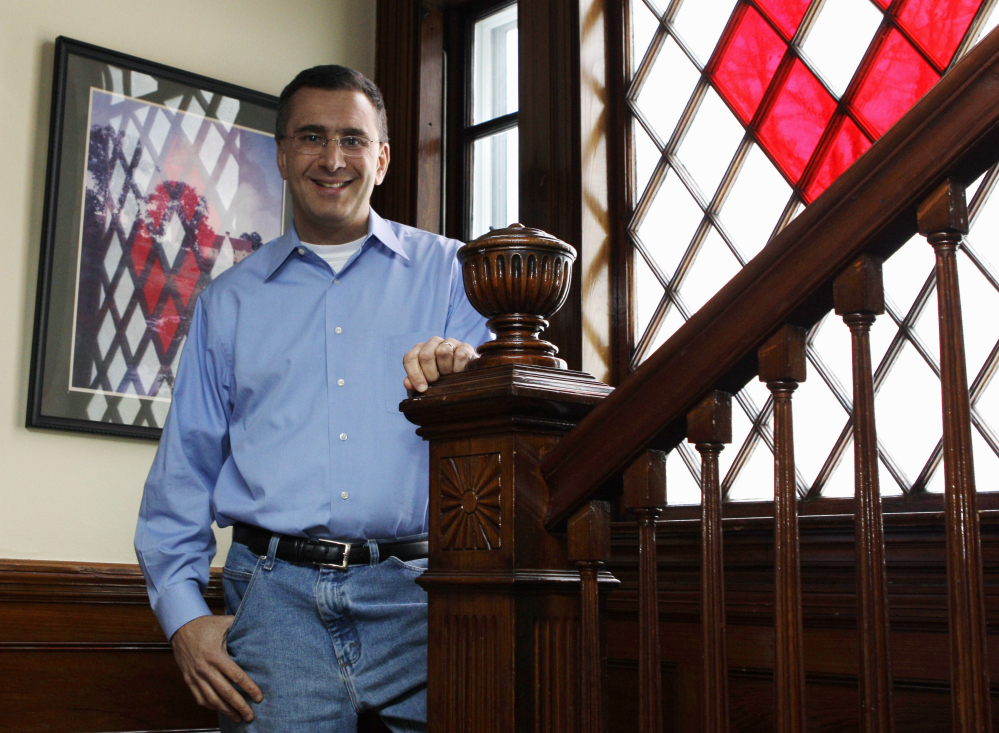WASHINGTON — Newly surfaced videos are adding fresh energy to the efforts of congressional conservatives to repeal the Affordable Care Act, feeding into their contentions that the overhaul was approved through a scheme of deception.
Some are calling anew for hearings on the law, which is about to begin its second year of coverage for millions of Americans. And activists are telling lawmakers to make good on their talk of scrapping the law or face defeat in the next elections.
The videos show MIT economist Jonathan Gruber, an adviser in the law’s drafting, saying that “the stupidity of the American voter” helped Democrats pass the complex legislation.
“The Gruber clip has caught fire,” says David Bozell, whose ForAmerica group campaigns against the health care law online.
In one video, Gruber describes what he depicts as the behind-the-scenes political strategy of the law’s supporters. At a 2013 University of Pennsylvania public forum, he says Americans’ lack of understanding helped Democrats pass the legislation.
Other impolitic statements have continued to dribble out in which Gruber claims that the law was written to deceive federal budget watchdogs and mocks conservatives’ concerns over health care policy.
He has since disavowed the most controversial remarks, saying he “spoke inappropriately and I regret having made those comments.”
Republicans, who made big gains during last week’s midterm congressional elections, have stood unified against the law they deride as “Obamacare,” and they now point to Gruber’s comments as yet another reason to dump it. They say the remarks show a cynical strategy by Democrats to camouflage the law’s politically unpalatable aspects and sneak them past an unsuspecting public.
Sen. John McCain, R-Ariz., is among those calling for hearings, perhaps including Gruber as a witness.
“This is what we complained about when we fought it for all those months on the floor. Nobody understood it,” McCain said.
Another advocate for scrapping the law, Sen. John Cornyn, R-Texas, branded the measure “just a bundle of deception.”
The videos have put Democrats on the defensive. Traveling with Obama in Asia this week, White House press secretary Josh Earnest defended the health law and said he would “disagree vigorously” with Gruber’s assessment. House Minority Leader Nancy Pelosi, D-Calif., instrumental in the law’s passage, said she did not know Gruber — despite having cited his analysis at least once in the past during an on-camera briefing with reporters.
“He didn’t help write our bill,” she said this week.
Both policy and politics are in play for the GOP. If congressional Republicans fail to push hard for repeal, they’ll face angered activists.
As the head of one influential conservative organization met with activists in Georgia this week, the mere mention of Gruber’s name drew jeers and brought people to their feet.
“It certainly has lit a fire among the grass roots,” said Heritage Action for America CEO Michael Needham. “All it does is confirms what everyone knows: I don’t think anyone in this country thought this law was passed without obfuscation.”
“How can you put another red penny toward this program?” asks ForAmerica’s Bozell, “when the architect of it says the only reason it passed is a lie?”
Few others, however, would call Gruber the architect of the massive law. He was a paid outside consultant, hired to crunch numbers as the legislation was developed. Ironically, he was brought on board because of expertise he acquired in helping Republican Gov. Mitt Romney set up a health care expansion in Massachusetts. That plan became the basis for Obama’s law.
Many Republicans contend there was a lack of transparency when the legislation was being put together. However, according to Democratic tallies, House lawmakers spent almost 100 hours and the Senate more than 160 in public hearings and debate on the measures, much of it televised on C-SPAN.
Sen. Roy Blunt, R-Mo., said Gruber’s comments show that “the president and his party intentionally hid Obamacare’s true costs.” But as it was being written, the law was frequently reviewed by the bipartisan Congressional Budget Office, the Joint Committee on Taxation and the often-critical Medicare Office of the Actuary.
Send questions/comments to the editors.



Success. Please wait for the page to reload. If the page does not reload within 5 seconds, please refresh the page.
Enter your email and password to access comments.
Hi, to comment on stories you must . This profile is in addition to your subscription and website login.
Already have a commenting profile? .
Invalid username/password.
Please check your email to confirm and complete your registration.
Only subscribers are eligible to post comments. Please subscribe or login first for digital access. Here’s why.
Use the form below to reset your password. When you've submitted your account email, we will send an email with a reset code.